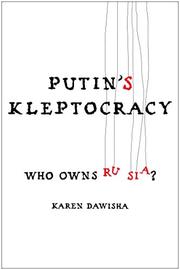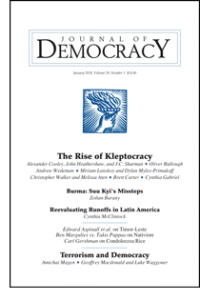 Russian President Vladimir Putin and other authoritarian rulers have worked assiduously to weaponize corruption as an instrument of foreign policy, using money in opaque and illicit ways to gain influence over other countries, subvert the rule of law and otherwise remake foreign governments in their own kleptocratic image, according to David Petraeus and Sheldon Whitehouse.
Russian President Vladimir Putin and other authoritarian rulers have worked assiduously to weaponize corruption as an instrument of foreign policy, using money in opaque and illicit ways to gain influence over other countries, subvert the rule of law and otherwise remake foreign governments in their own kleptocratic image, according to David Petraeus and Sheldon Whitehouse.
Ironically, one of the reasons 21st-century kleptocrats are so fixated on transferring their wealth to the United States and similar countries is because of the protections afforded by the rule of law. Having accumulated their fortunes illegally, they are cognizant that someone more connected to power could come along and rob them too, as long as their loot is stuck at home, they write for the Washington Post:
 Fortunately, the United States has begun to take steps to harden its rule-of-law defenses and push back against foreign adversaries. The passage of the Global Magnitsky Act in 2016, for instance, provided a powerful new tool for targeting corruption worldwide that is being increasingly utilized. But there is more to do.
Fortunately, the United States has begun to take steps to harden its rule-of-law defenses and push back against foreign adversaries. The passage of the Global Magnitsky Act in 2016, for instance, provided a powerful new tool for targeting corruption worldwide that is being increasingly utilized. But there is more to do.
In particular, the United States should make it more difficult for kleptocrats, and their agents, to secretly move money through the rule-of-law world, whether by opening bank accounts, transferring funds or hiding assets behind shell corporations.
“Complacency about graft and kleptocracy beyond U.S. borders risks complicity in it — with grave consequences both for the nation’s reputation abroad and Americans’ well-being at home,” they add. RTWT
For Stanford University’s Francis Fukuyama, Putin is a kleptocrat with no doctrine, contrary to claims that he represents a new ideology.







